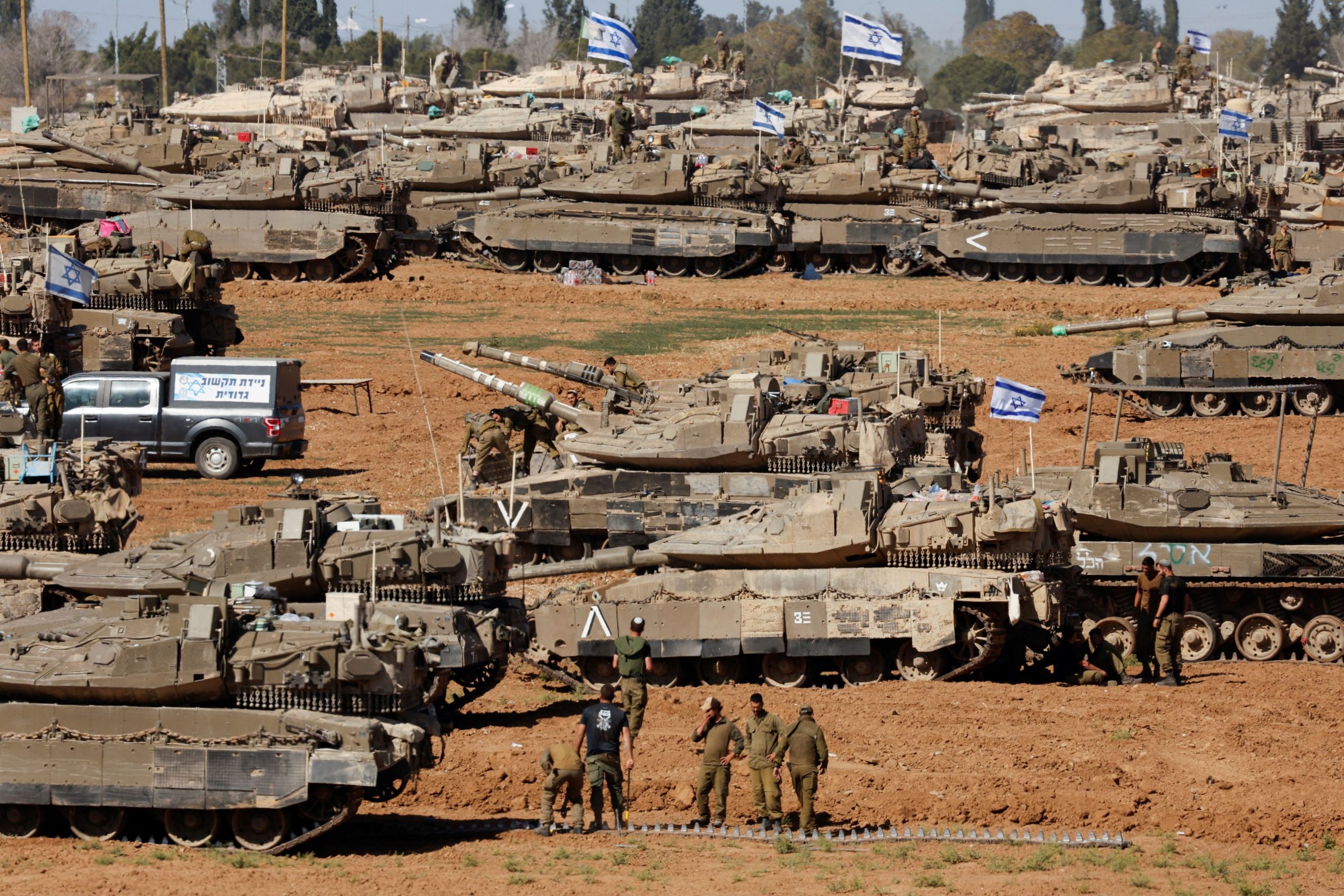In Washington’s first formal rebuke to Israel’s campaign against Hamas in Gaza, the Biden administration said late Tuesday that it has paused a shipment of weapons including 2,000 pound bombs destined for its top Middle East ally, as Israel mounted new operations in Rafah in southern Gaza.
U.S. officials said they were conducting a review of other weapons sales amid Israel’s operations in Rafah, launched late Monday, even after Hamas agreed to the rough outlines of a deal that could release hostages for a cease-fire.
Earlier Tuesday, Israel sent tanks into Rafah and took control of the Gaza side of a key border crossing to Egypt, securing a strategic corridor as negotiations for a truce and hostage releases intensified. That also closed a critical gateway for humanitarian assistance for Palestinians, prompting the U.S. to renew calls to reopen the gate.
The Biden administration has repeatedly said that it opposes Israel launching a ground operation in Rafah, unless there is a plan to protect the more than one million people who have sought safety there. Israeli Prime Minister Benjamin Netanyahu has said the Rafah operation would go forward “with or without a deal.”
Israel has “not fully addressed our concerns,” a senior administration official told reporters in a statement.
“As Israeli leaders seemed to approach a decision point on such an operation, we began to carefully review proposed transfers of particular weapons to Israel that might be used in Rafah,” the official said in the statement about the review, which began in April. “We have paused one shipment of weapons,” which consists of 1,800 bombs that weigh 2,000 pounds. The shipment also has 1,700 bombs that weigh 500 pounds.
“We are especially focused on the end-use of the 2,000-lb bombs and the impact they could have in dense urban settings as we have seen in other parts of Gaza. We have not made a final determination on how to proceed with this shipment,” the official said.
The official didn’t say who is leading the review, when it would conclude and how the administration is making its assessment.
During a March interview with MSNBC, President Biden warned that an Israeli offensive on Rafah would be a “red line.”
“[We] cannot have another 30,000 more Palestinians dead,” Biden said then.
The U.S. decision to pause sales appeared to be the first public attempt to draw that line amid mounting criticism about the death toll and destruction within Gaza through U.S.-provided weapons.
In recent weeks the administration had quietly made changes to its weapons sales to Israel. The U.S. did move forward with the sale of up to 6,500 Joint Direct Attack Munitions—kits that enable unguided bombs to be steered to a target—according to officials familiar with the proposed deal. Congress first learned in January about the proposed sale, which is worth as much as $260 million, but the Biden administration has since that time not moved forward with the deal, The Wall Street Journal reported. The State Department is reviewing that sale, the senior administration official said.
The State Department is required to notify Congress when the U.S. plans to sell weapons to other countries when the deal rises above specific dollar thresholds. The State Department typically provides information to the House Committee on Foreign Affairs and Senate Committee on Foreign Relations ahead of those potential arms sales, followed by the formal congressional notification.
In the case of the JDAMs, however, the administration never followed up with the official notification about the sale, triggering an effective pause in the deal.
Since March, the Biden administration has also not advanced the congressional notification process on another $1 billion in weapons deals for Israel that includes tank ammunition, military vehicles and mortar rounds, U.S. officials said.
Those potential deals included the transfer of $700 million in 120 mm tank ammunition, $500 million in tactical vehicles and less than $100 million in 120 mm mortar rounds, U.S. officials said. The sales would take months or years to be delivered.
The administration is under pressure from many Democrats in Congress to cut back weapons supplies to pressure Israel into doing more to prevent the killing of civilians in Gaza.
More than 34,000 Palestinians have been killed since the start of the offensive in Gaza, most of them civilians, according to Palestinian authorities, who don’t specify how many were combatants. Israel invaded Gaza after a Hamas-led attack on southern Israel on Oct. 7 killed some 1,200 people, most of them civilians, according to Israel.
Most of Israel’s weapons purchases from the U.S. are made using the billions of dollars in American government funding that Washington gives to help Israel shore up its military each year. Israel is among the largest recipients of U.S. military aid in the world.
Following months of legislative gridlock stemming from Republican objections to aiding Ukraine, Congress last month passed a bill to provide an additional $26 billion in assistance for Israel and humanitarian aid for Gaza, including more than $5 billion to replenish Israel’s air defenses. President Biden signed the bill, along with separate measures to send weapons to Ukraine and Taiwan, in late April. The paused weapons shipment is related to previously appropriated funds and not linked to the recent aid that Congress approved, the official said.
The U.S. sent tens of thousands of bombs, artillery shells and other munitions to Israel in the initial months of the war following Hamas’s Oct. 7 attack. The flow dropped off in recent months as the Pentagon has run short of munitions it can provide Israel quickly, while also meeting Ukraine’s needs and maintaining sufficient U.S. stockpiles.
Write to Nancy A. Youssef at nancy.youssef@wsj.com and Gordon Lubold at gordon.lubold@wsj.com



